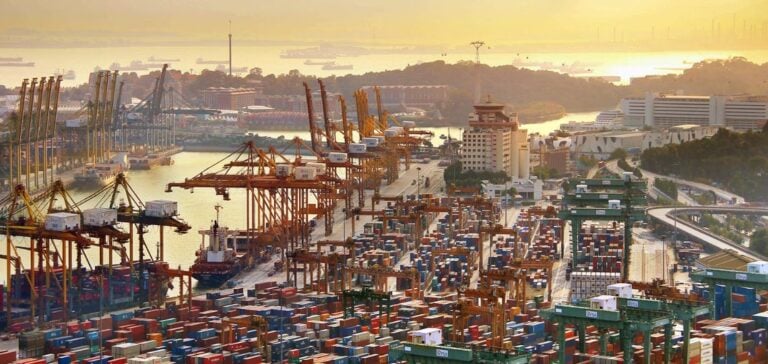High sulfur fuel oil (HSFO) forward contracts in Singapore for December were priced at premiums between $7 and $13 per metric ton, according to industry sources. This represents a decline compared to November, when premiums ranged from $8 to $15. Market participants attribute this trend to sufficient stock levels and limited inventory turnover.
A trader based in Singapore noted that Russian supply flows could resume in the latter half of December, as refineries recently completed maintenance. However, approximately 500,000 metric tons of HSFO from the Middle East and Venezuela are expected to arrive in the Singapore Strait by mid-December. These arrivals could stabilize prices in the short term, although Russian exports remain uncertain.
The Hi-5 Spread Narrows
Despite steady demand for HSFO, the differential between 0.5% sulfur marine fuel and 380 CST HSFO, known as the Hi-5 spread, has narrowed to its lowest level in five months, at $75 per metric ton. This narrowing reflects a weakened low-sulfur marine fuel complex alongside relatively stable HSFO market dynamics.
Nevertheless, medium-term prospects for scrubbers (smoke emission cleaning systems) remain positive. A representative from a shipbuilding company indicated that orders for 2025 remain steady, although some shipowners remain hesitant about alternatives to conventional fuels.
Declining Chinese Demand
China’s independent refineries, also known as “teapot refiners,” have shown limited interest in HSFO for November and December. This is due to reduced utilization rates and compressed refining margins, exacerbated by reduced tax rebates. According to a trader, these refineries are unlikely to increase purchases in the near term, as margins remain under pressure.
However, some market participants speculate that Chinese refineries might accelerate purchases ahead of the anticipated geopolitical uncertainties following the U.S. presidential inauguration in January 2025. These uncertainties could affect sanctions targeting Iran, Venezuela, and Russia, potentially disrupting global trade flows.






















